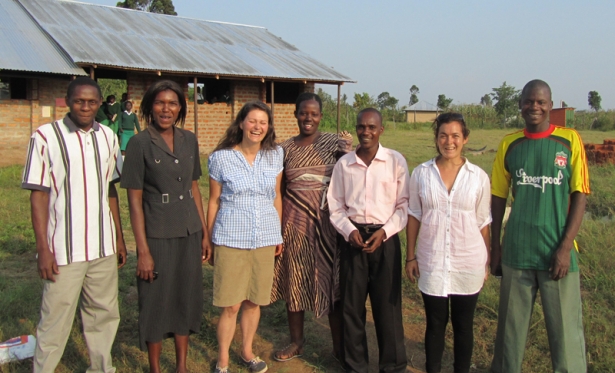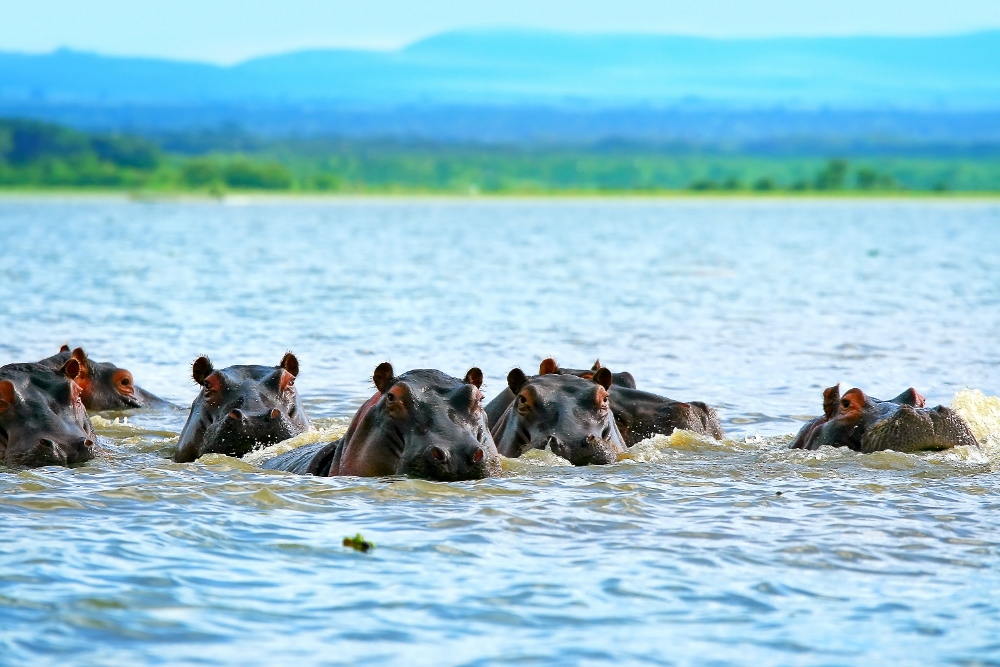'It changed my life': Career changers reveal to ACCA Magazine08.01.2020
ACCA's AB Magazine: 'It changed my life'
Taking a few months out of the regular job to work on a charity project is such a rewarding experience for some professionals that they choose to make it their life.
As a qualified accountant, you decide you need a break from the routine but want to give something back. So you sign up to volunteer with Accounting for International Development (AfID), the global organisation that provides volunteering opportunities for accountants at non-governmental organisations (NGOs).
You take up your placement on the other side of the world and then realise that you have found your calling, that this is what you want to be doing – not just as a career break but for the rest of your life.
This is the experience of many ACCA members who volunteer with AfID – they ultimately leave their corporate roles for long-term careers in international development. Over 20% of AfiD’s volunteers become ‘career changers’, taking up a full-time NGO position.
Take Arne Kuehl ACCA. After roles in practice and with corporations, Kuehl (originally from Germany) chose to volunteer with AfiD.
‘I was at a stage in my career where I felt that I needed a new perspective. Fulfilment in my job, rather than career progression, had become the most important thing for me,’ he explains. ‘Volunteering in 2016 for Kidogo in Kenya was to change my career and my life. I did not want to return to what I did before.’
Kuehl now works for German aid agency GIZ, leading its energy programme’s finance and admin team in Uganda. ‘I love my job. It’s the best role I’ve ever had,’ he says.
Swedish-born Monica Liljeroth ACCA, who spent eight years in practice, was also drawn to volunteer. ‘I felt it was right to have some me time. I went out on my first “adventure” to northern Malawi for a month. When I returned I’d made up my mind that there was more to being a finance professional than the service sector, so I decided to make a career move.’ She now works for the Clean Air Fund following a wide range of NGO roles.
New challenges
The financial management tasks faced by those working in NGOs are often quite different from those in the corporate world. They include managing donor funds, which typically come from international institutions such as the European Union and the United Nations, or from national governments. Each donor will have their own complex requirements about how their contracts should be managed and reported on. What they will and won’t pay for, and how the project will be funded, is key.
The NGO, for example, may be expected to pay upfront for a programme (for which they will be reimbursed), which has huge ramifications for the NGO’s cashflow. Hence the need for financial expertise.
Liljeroth says: ‘The finance role is often similar wherever you go in the not-for-profit sector – dealing with donors, being surrounded by people with a passion for the cause, working with local organisations, and capacity building.’
Kuehl says professional accountants can make a real impact. ‘Our qualification and practical experience as accountants from a developed country can add so much value. One of the biggest contributions I’ve made is in the capacity building of professionals within my team.’
NGOs are certainly in need of financial expertise, but they also seek experience. Volunteering gives a candidate an idea if the sector really does suit them, and it will impress recruiters. ‘A pro bono placement at a charity overseas holds a significant amount of weight in applications,’ explains AfID spokesperson Jessica Jackson. ‘It shows a clear interest and commitment to the sector that is just as valuable as qualifications.’
AfID proactively assists volunteers who want to move into NGOs. It links up finance professionals with more than 50 organisations, including Oxfam, Save the Children and ActionAid.
However, there are real contrasts between working for an NGO and life in the corporate world. ‘The biggest difference for me is working in an environment focused on successful sustainable development, with a very diverse team of Ugandan and German colleagues,’ Kuehl says.
Liljeroth agrees that NGOs offer something special. ‘The main difference is that you can work with something you are passionate about. An important aspect for me was that you learn so much.’
There are downsides too, though. The pay will not be as high as in the corporate world, and the work on location can be very challenging. Liljeroth recommends volunteering with AfID first and carefully discussing any career move with family and partners. She also says it makes sense to do short-term contracts at first to develop experience.
Kuehl saw at Kidogo how good financial management made a huge difference to schemes. ‘I’m constantly seeing things in new ways and problem-solving without it feeling like it’s a chore. It offers different perspectives and opportunities.’
He recommends speaking to people in the sector, and finding out about the countries you could go to. ‘There’s definitely more to regret if you don’t try it than if you do. Just go for it.’
Read the full article in the January 2020 International issue of ACCA's AB Magazine online here or in PDF format here.



, me, Jacinta (finance officer), Justin (careers gu.JPG)